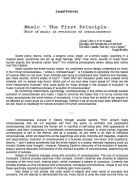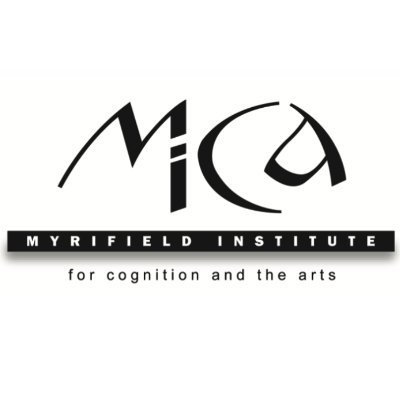
Last paper:
Grazia Pulvirenti, Renata Gambino, Neurohermeneutics. A Transdisciplinary Approach to Literature
- Peer review
- Submit a paper
- Suggest a paper
- Contact us
- Partner program
Leonid Perlovsky,
Music. The First Principle
 Year: 2005
Year: 2005DOWNLOAD PAPER
Download size: 375.44 KB
Grand piano, drums, violins, a singer’s voice, organ, or a simple bugle, sounding in a musical piece, sometimes can stir up deep feelings. Why? How come, sounds of music touch human psyche that ancients called “soul”? For millennia philosophers where raking their brains over this mystery.
Music touches the entire human nature, “so completely and so deeply understood by (man) in his inmost consciousness...” wrote A. Schopenhauer.1 Is it possible to penetrate into the nature of musical affect on our soul? Even Aristotle was trying to understand how “rhythms and melodies, just mere sounds, remind states of soul?” 2 More than two thousand years have passed since Aristotle, still no answer was found. Which part of our soul does music speak to? What are the mind mechanisms involved? How could ability for music emerge in the process of evolution? Is music involved into historical process of evolution of consciousness?
By combining mathematics, psychology, neurophysiology in this article we consider parallel evolution of consciousness and music. I hope to convince the reader that it is not by chance that music accompanies the entire history of humankind. I’ll try to show that an ability of our psyche to be affected by music gives us a sort of advantage. Without it we all would have been different than we are. Music is necessary for natural evolution of human consciousness.
Project
The Neuro Humanities Studies Network aims at creating a multidisciplinary research community in order to develop and structure a linking platform for neuro-scientific, cognitive topics and humanities.
Click on each keyword to show papers related with it.









